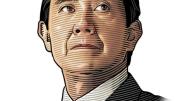Try to imagine what the world might be like 25 years from now. It seems quite likely that mainland China will have already overtaken the United States 10 years hence as the biggest economy in the world, and the galloping pace of economic growth in Asia will have established the region as the world’s center of economic gravity. By that time, a multipolar global power structure will have emerged. The United States will continue to be a major power, to be sure, but its unchallenged supremacy over the rest of the world will be a thing of the past.
Even so, the United States has some big advantages, such as its use of English (the international language) and its issuance of the U.S. dollar (the international currency), which will not disappear by 2036. To the contrary, these factors assure the continued strength of the United States, which also enjoys the advantage of being able to attract outstanding talent from all over the globe. The United States has led the world in recent years in the number of universities in the global top 50, and in the number of Nobel Prize winners. Even in the face of mainland China’s rapid rise, the United States will retain these advantages for decades to come. It will still be a center for the cultivation and development of the best talent in the world. Harvard University stands at the apex of the U.S. academic world, and it is quite clear that Harvard’s influence in the United States and around the world will remain undiminished.
But the University should not stake its reputation on academic clout alone. Harvard needs to go a step further and influence how the human race reflects upon itself, and how it orders its thoughts. Over the past century, capitalism and democracy have expanded rapidly across the globe and become the shared pursuit of all mankind. But human beings today face many challenges, including global warming, population pressures, shortages of energy resources and water, the clash of civilizations, and terrorism. It would seem that the objects of our shared pursuit are no longer a sufficient response to these problems.
As the world seeks to address the many nettlesome issues facing it, we urgently call upon Harvard University to point the way forward during the coming 25 years, both in the world of thought and in the realm of concrete action. We would hope that the Harvard of 25 years from now, beyond being the leader of the academic world, is nothing less than the hope of mankind.
Ma Ying-jeou, S.J.D. ’81, is president of the Republic of China.









